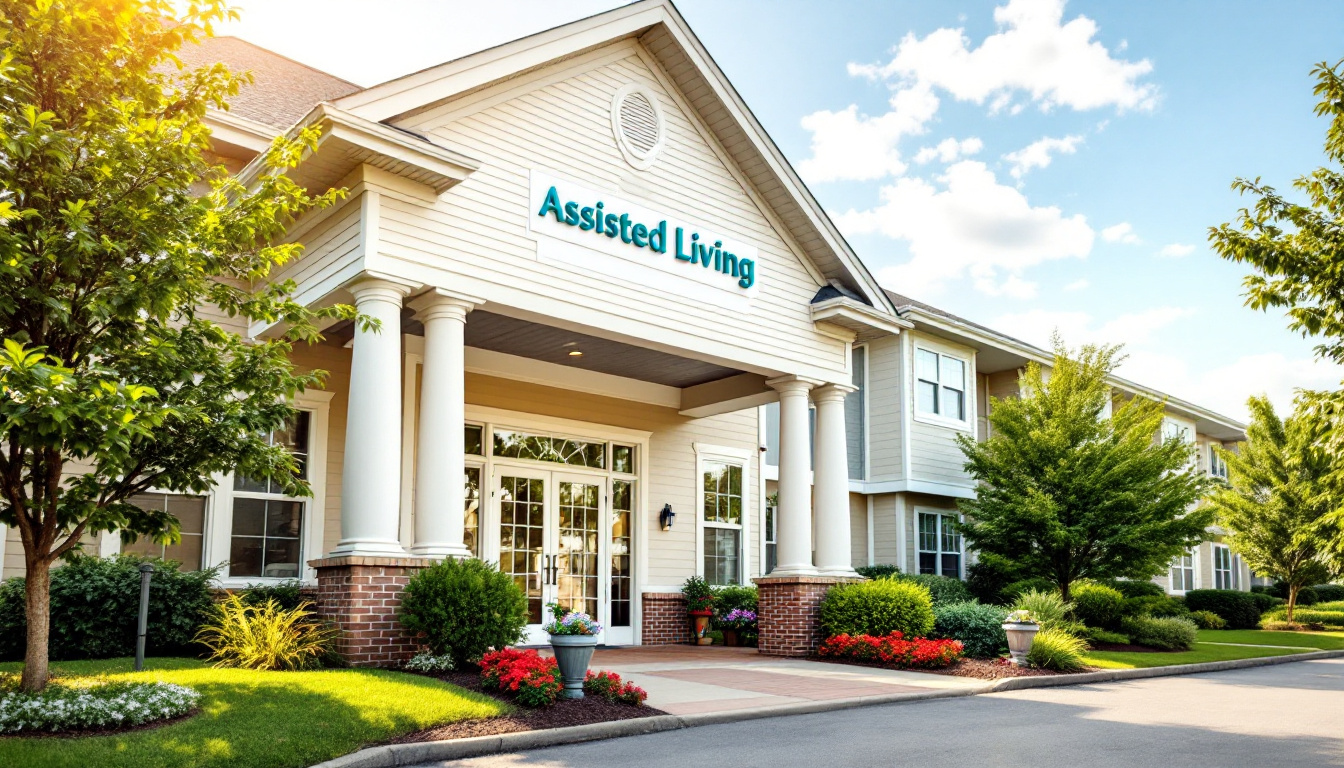Understanding the Role of Case Managers in Senior Care Placement
How Case Managers Ensure Seamless Senior Care Transitions

Introduction to Senior Care Placement and Case Management
The complex landscape of senior care placement necessitates expert guidance to ensure that elderly individuals receive appropriate, timely, and holistic support. Case managers, particularly geriatric care managers, serve as vital connectors between seniors, families, healthcare providers, and community resources. This article explores the multifaceted role of case managers in senior care placement, highlighting their core responsibilities, strategies, and the importance of their services in enhancing elder well-being and fostering independence.
Defining Case Management in Healthcare

What is case management in healthcare?
Case management in healthcare is a collaborative process involving trained professionals—such as nurses, social workers, or behavioral health specialists—who coordinate and support patients in accessing a wide range of necessary services. It begins with a comprehensive assessment of the individual's health, social, and financial needs. Based on this assessment, the case manager develops a personalized care plan that addresses medical treatment, social supports, housing, mental health services, and community resources.
Once the plan is set, case managers facilitate the implementation by helping coordinate appointments, arrange home care or rehabilitation services, and connect patients with support groups or legal assistance when needed. They continuously monitor the patient's progress, making adjustments to the care plan as necessary to meet evolving needs. Throughout this process, case managers act as advocates, guiding patients through complex healthcare systems, ensuring proper treatment adherence, and preventing unnecessary hospital readmissions.
The primary goal is to enhance health outcomes, improve patient safety, and increase satisfaction with care. Additionally, effective case management aims to reduce healthcare costs by avoiding duplicative services and ensuring efficient use of resources. This approach is especially vital for individuals with chronic diseases or multiple health conditions requiring coordinated, ongoing support.
Overall, case management serves as a comprehensive support system—bridging gaps in healthcare, simplifying navigation, and promoting wellness through tailored, integrated care plans.
How do assessment, planning, and monitoring of patient needs work?
The process begins with a detailed screening and assessment phase, where case managers gather information about the patient’s health status, functional abilities, social supports, and economic situation.
Following assessment, they stratify risks and develop an individualized care plan that sets specific goals for health management, safety, and independence.
Implementation involves coordinating services such as medical care, social supports, and legal assistance. The case manager schedules appointments, oversees treatment adherence, and ensures delivery of necessary resources.
Monitoring involves regular follow-ups to evaluate progress, reassess needs, and modify the care plan accordingly. This ongoing oversight helps catch potential issues early, prevent complications, and ensure the patient remains on track toward their health and wellness goals.
What is the role of advocacy and how do case managers connect clients to resources?
Advocacy is a cornerstone of case management. Professionals advocate for patients' needs by ensuring they receive appropriate levels of care, helping them navigate insurance policies, and addressing barriers within the healthcare system.
Case managers connect clients to a broad range of resources—such as community support groups, transportation services, legal assistance, and elder law experts—by maintaining relationships with local organizations and service agencies.
They assist families in understanding complex healthcare options, apply for financial aid, and explore benefit programs like Medicaid, Medicare, or veteran benefits. They also facilitate smoother care transitions, such as moving from hospital to home, reducing the risk of hospital readmissions.
What are the outcomes of effective case management?
When carried out effectively, case management results in better health and social outcomes. Patients experience improved self-management skills and increased adherence to treatment plans.
It also enhances safety, reduces unnecessary hospitalizations, and supports independence, allowing seniors and chronically ill patients to stay in their homes longer.
Cost savings are significant because coordinated care minimizes redundant services and prevents costly complications.
Overall, the goal is to help individuals achieve an optimal level of wellness and self-sufficiency, all while managing healthcare costs and improving quality of life for older adults—a vital service within the geriatric care landscape.
Core Responsibilities of Geriatric Care Managers
Conducting home visits and assessments
Geriatric care managers routinely visit their clients’ homes to perform comprehensive assessments. During these visits, they evaluate living conditions, safety hazards, and daily needs. This personal interaction helps build trust between the manager and the senior, creating a foundation for collaborative planning.
They identify potential risks like falls or health issues and observe social or emotional factors that could impact well-being. The information gathered guides the development of tailored care strategies that accommodate the evolving needs of the older adult.
Developing adaptable care plans
A central role is creating flexible, personalized care plans. These plans address immediate health concerns as well as long-term objectives. Care plans are designed to be adaptable, allowing adjustments as the senior’s health and circumstances change.
Case managers prioritize goals such as maintaining independence, preventing hospitalizations, and improving quality of life. They coordinate services like medical appointments, home modifications, and social activities, ensuring the plan meets both current and future needs.
Connecting clients with community and healthcare resources
Geriatric care managers serve as a nexus to community resources. They connect clients with local support groups, transportation services, meal programs, and home health agencies. They also assist in enrolling seniors in programs like Medicaid, Medicare, or veteran benefits.
Their strong network within local health and social services allows them to facilitate timely access to the right resources, reducing the burden on families and promoting overall well-being.
Advocacy for proper care and emotional support
A vital part of their role involves advocating for seniors’ rights and ensuring they receive appropriate care. They act as a bridge between the elderly, family members, healthcare providers, and service agencies.
Geriatric care managers also offer emotional support, helping seniors cope with health changes, loneliness, or family conflicts. Their presence fosters trust and helps seniors feel understood and respected.
Managing benefits, legal concerns, and financial planning
These professionals assist in navigating complex benefit systems such as veteran aid programs, Medicaid, and Medicare. They help manage benefit applications, monitor eligibility, and optimize available resources.
Legal concerns like power of attorney, living wills, and elder law issues are also part of their scope. They connect families with legal experts and financial planners to safeguard seniors’ assets and rights.
| Core Responsibilities | Description | Additional Notes |
|---|---|---|
| Home visits and assessments | Evaluate living conditions, safety, social and emotional factors | Build trust, identify risks, inform care plans |
| Developing care plans | Create flexible, tailored strategies for health and social needs | Reassess and modify as needed |
| Connecting resources | Link seniors to community services, healthcare, benefits | Reduce family burden, promote independence |
| Advocacy and emotional support | Ensure proper care, provide emotional guidance | Improve client trust and well-being |
| Benefits and legal management | Help navigate benefits, legal issues, financial planning | Protect assets, maximize support |
Additional Areas of Focus
Geriatric care managers also coordinate medical and social services, facilitate transitions between care settings, and monitor ongoing needs. They often work closely with healthcare professionals like nurses, social workers, and therapists to ensure holistic support.
Effective collaboration, clear communication, and a compassionate approach are essential to their success. By integrating medical, social, and legal aspects, geriatric care managers contribute significantly to aging in place with dignity and quality life.
For those seeking to understand geriatric care management responsibilities, searching terms like "Geriatric case management responsibilities" can provide further insights. Their work continues to evolve with advancements in healthcare technology and services, aiming to meet the complex needs of the aging population.
The Multi-Phased Process of Care Management

Screening and assessment of elders
The first step in effective care management for seniors involves thorough screening and assessment. This phase acquires vital information about the elder’s age, health status, living conditions, financial assets, and functional abilities. Healthcare professionals such as geriatric care managers or nurses conduct face-to-face assessments to determine the specific needs and eligibility for services. During this process, they also evaluate factors like social support networks and medical requirements, aiming to establish a comprehensive understanding of the senior’s overall situation.
Assessment results help identify immediate concerns such as safety risks or medical conditions, which shape subsequent care planning. Proper screening and assessment enable personalized care strategies that align with the elder’s health status, preferences, and available resources.
Risk stratification and care planning
Following assessments, professionals perform risk stratification. This process involves categorizing seniors based on the severity of their needs—whether they face moderate or high risks for health deterioration, hospitalization, or institutionalization. Risk stratification guides the prioritization of care efforts, ensuring resources are directed to those with the most urgent needs.
Care planning then begins, designing adaptable strategies for short-term and long-term support. These plans consider medical treatments, social services, emotional well-being, and daily living needs. Involving family members and the elder in these discussions fosters trust and helps develop feasible and personalized care goals.
Care coordination and implementation
Once care plans are established, care coordinators actively implement them by organizing necessary services. This may include arranging home health care, medication management, transportation, social activities, and legal or financial services. Case managers collaborate with healthcare providers, community resources, and family members to assign tasks clearly and ensure services are delivered seamlessly.
Effective execution involves scheduling appointments, overseeing service quality, and documenting all interventions. This stage often requires navigating complex healthcare systems such as veteran services or Medicare outpatient programs. The ultimate goal is to optimize care delivery, prevent gaps, and address emerging issues promptly.
Monitoring, follow-up, and re-assessment
Continuous monitoring and follow-up are crucial for adapting care to the evolving needs of seniors. Case managers regularly evaluate health status, medication adherence, safety at home, and emotional well-being through home visits, phone calls, or telehealth tools.
Monitoring helps detect early warning signs of deterioration or adverse reactions, prompting timely interventions. Re-assessment sessions further refine care plans based on progress, new diagnoses, or changes in living situations. This iterative process assures that care remains relevant, effective, and centered on the elder’s current needs.
Transitions and post-care evaluation
Successful transitions between care settings—such as moving from hospital to home or a care facility—are pivotal in elder care. Case managers facilitate these moves by coordinating medical records, arranging post-discharge services, and educating families.
Post-care evaluation involves reviewing the outcomes of interventions, measuring goal attainment, and gathering feedback from the senior and their family. These reviews inform the effectiveness of the care plan, highlight areas for improvement, and guide future strategies.
| Phase | Purpose | Activities | Outcomes |
|---|---|---|---|
| Screening and Assessment | Identify needs and eligibility | Data collection, face-to-face interviews | Detailed understanding of elder’s condition |
| Risk Stratification & Care Planning | Prioritize resources and create strategies | Categorize risk levels, individualized plans | Tailored care that adapts to changing needs |
| Care Coordination & Implementation | Deliver services effectively | Organize and supervise care services | Seamless service delivery, safety |
| Monitoring & Re-assessment | Ensure ongoing relevance | Regular check-ins, updates | Evolving care plans that meet current needs |
| Transitions & Evaluation | Facilitate safe moves, assess outcomes | Coordinate transfers, review results | Improved safety, reduced readmissions |
What are the core functions of case management?
The core functions of case management involve systematically managing cases through various interconnected steps to resolve complex issues efficiently. These functions include screening to determine the need for processing, assessing to understand the problem deeply, evaluating risks to prioritize cases, planning to develop strategic approaches, implementing the plan, following up to monitor progress and effectiveness, and evaluating outcomes to analyze results and provide feedback. Case management simplifies handling large volumes of unstructured data, promotes collaboration across teams, and utilizes data-driven insights to drive timely resolutions. It is applicable across industries such as healthcare, legal, insurance, and customer service, where dynamic and flexible workflows are required. Overall, case management aims to streamline workflows, optimize resource use, improve customer satisfaction, and ensure effective resolution of varied and complex cases.
Tools and Strategies Used by Case Managers in Senior Care Placement

What procedures are involved in senior care placement and how do case managers coordinate services?
Senior care placement involves a series of systematic steps designed to ensure that older adults receive appropriate support tailored to their evolving needs. Case managers play a central role in this process, utilizing a variety of tools and strategies to coordinate services effectively.
Initially, case managers conduct comprehensive assessments of the senior’s health, social, and financial situations. They use specialized assessment tools to evaluate functional abilities, medical conditions, home safety, and support networks. These evaluations help in creating personalized care plans that identify required services, such as medical care, social support, and legal assistance.
Once needs are identified, case managers develop detailed, adaptable care plans. They connect seniors with appropriate healthcare providers, community resources, and legal or financial professionals. This may include arranging for in-home care, connecting with adult protective services, or helping with benefits management.
Technology plays a vital role in this coordination. Electronic Health Records (EHRs) enable seamless sharing of medical information among healthcare providers, ensuring everyone involved has up-to-date data. Care coordination software further enhances communication by organizing appointments, medication schedules, and service providers, thereby reducing errors and improving efficiency.
Throughout the placement process, case managers facilitate communication between seniors, families, healthcare professionals, and community organizations. They schedule and oversee medical appointments, ensure proper documentation, and assist with navigating complex systems like veteran healthcare or elder law services.
Monitoring and follow-up are essential tasks. After initial placement, case managers evaluate the effectiveness of the care plan, make adjustments as dictated by the senior’s health status, and advocate for continued or additional support services. They oversee transitions between care settings, such as moving from hospital to home or assisted living, reducing risks and enhancing safety.
In summary, case managers coordinate senior care placement through meticulous assessment, personalized planning, utilization of advanced technology, and active communication. Their efforts aim to foster aging in place, maximize independence, and improve overall well-being of older adults.
Impact of Case Management on Healthcare Outcomes and Transitions

Why is case management important in healthcare?
Case management plays a vital role in today’s healthcare landscape by serving as a bridge that connects patients to a maze of medical, mental health, and social support systems. It offers personalized coordination of services, helping individuals navigate complex and often overwhelming systems with greater ease.
At its core, case management aims to improve health outcomes while enhancing the patient’s overall experience. It promotes patient autonomy by empowering individuals to actively participate in their care plans, fostering better self-management skills.
A significant benefit of case management is its potential to reduce unnecessary hospitalizations and emergency visits, which not only improve patient safety and satisfaction but also lead to substantial cost savings for health systems. This is especially crucial given the high utilization of resources by vulnerable populations such as seniors.
By addressing social determinants of health — like housing, transportation, and social support — case management ensures a more holistic approach. It facilitates smooth transitions between different care settings, like from hospital to home, thus preventing gaps in care and reducing readmission rates.
Finally, case management supports high-utilizing patients, who often account for a majority of healthcare costs. Their tailored, coordinated services help make care more efficient, equitable, and effective, ultimately fostering a safer and more patient-centered healthcare environment.
What impact does case management have on healthcare outcomes?
Effective case management directly correlates with improved health outcomes. It works by reducing hospital readmissions and preventing emergency department visits through proactive, personalized intervention strategies.
Continuity of care is a major strength of case management. By ensuring that patients receive continuous, coordinated services, it minimizes health risks associated with fragmented care. For instance, smooth transitions from hospital to home or other facilities are critical for recovery and are a primary focus of case managers.
These services enhance patient safety by closely monitoring health status, medication adherence, and home safety, which mitigates risks of complications or deterioration.
Patient satisfaction also improves as individuals feel more supported and confident in managing their health conditions. Additionally, tailored interventions for chronic disease management lead to better control of health issues, reduced progression, and fewer emergency crises.
Moreover, these coordinated efforts extend beyond medical treatment to include social and emotional support, which significantly boosts quality of life. From a systemic perspective, these improvements reduce the burden on emergency services and hospitals, promoting cost-effective, sustainable healthcare.
In summary, through comprehensive and personalized support, case management not only enhances individual health outcomes but also fosters more efficient and equitable healthcare delivery systems.
The Evolution and Importance of Care Professionals in Senior Care

Historical background of case management
The concept of case management in senior care traces back to the late 19th and early 20th centuries. Its roots are linked to efforts in settlement houses, social work, and nursing, where the focus was on providing coordinated support for vulnerable populations. Over time, especially with healthcare reforms, technological advancements, and responses to societal aging, the modern form of case management has evolved to include comprehensive, client-centered approaches. The development of electronic health records (EHRs) and care coordination software has significantly enhanced the efficiency and reach of these professionals.
Initially, case management aimed simply at organizing services, but today it encompasses a wide array of health, social, and legal support tailored to individual needs. This shift has been driven by the increasing complexity of healthcare systems and the diverse needs of an aging population, leading to the recognition of professionals like geriatric care managers, nurses, social workers, and legal experts as vital components of senior care.
Multidisciplinary team approaches
Effective senior care relies on well-coordinated teamwork among various professionals. Multidisciplinary teams typically include registered nurses, social workers, mental health specialists, legal advisers, and community service coordinators.
These teams work collaboratively to assess needs, develop personalized care plans, and ensure seamless service delivery. The integration of medical and social perspectives facilitates holistic support, addressing not only health-related issues but also social, legal, and emotional considerations.
Technology plays an enhancing role here, offering tools that improve information sharing and task coordination among team members. This collaborative approach has demonstrated to improve health outcomes, reduce hospital readmissions, and boost satisfaction among seniors and their families.
Credentialing, certifications, and professional standards
Standards and credentials for care professionals have become increasingly stringent, reflecting the importance of quality and ethics in senior care. Organizations like the Aging Life Care Association (ALCA) set guidelines for geriatric care managers, emphasizing competency in assessments, care planning, advocacy, and system navigation.
Many professionals come from backgrounds such as nursing, social work, or mental health counseling, and often obtain certifications from recognized bodies like the Commission for Case Manager Certification or the National Association of Social Workers.
These certifications ensure practitioners uphold high standards of practice, including confidentiality, cultural competence, and ethical decision-making. Continued education and adherence to evolving guidelines are crucial to maintaining professionalism and ensuring that seniors receive the best possible care.
The role of nurses, social workers, and legal experts
Nurses, particularly those specialized in case management, play a pivotal role in coordinating health services. They conduct home visits, monitor medical conditions, and facilitate communication between healthcare providers and families.
Social workers contribute by assessing psychosocial needs, connecting clients with community resources, and advocating for their rights. They often handle mental health concerns, emotional support, and help families navigate complex social systems.
Legal experts, including elder law attorneys, assist seniors and their families in addressing legal issues such as estate planning, power of attorney, and guardianship. They ensure legal rights are protected and that care plans align with legal and financial considerations.
Together, these professionals form a comprehensive team that addresses the multifaceted needs of aging individuals, ensuring holistic, coordinated care that promotes independence and quality of life.
| Profession | Primary Role | Contribution to Senior Care | Certification/Standards |
|---|---|---|---|
| Geriatric Care Manager | Care coordination, advocacy, care plan development | Holistic oversight, personal support | ALCA certification, nursing or social work background |
| Registered Nurse | Medical assessments, home visits, care supervision | Medical management, health monitoring | State licensure, specialty certifications |
| Social Worker | Psychosocial assessment, resource connection, emotional support | Emotional well-being, resource access | NASW certification, specialized geriatric training |
| Legal Experts | Legal planning, guardianship, elder law concerns | Legal rights protection, financial planning | Bar admission, elder law specialization |
This multidisciplinary and credentialed approach ensures seniors receive comprehensive, respectful, and effective care, adapting to changing needs over time.
Conclusion: Elevating Senior Care through Expert Case Management

Why is case management important in healthcare?
Case management plays a vital role in the healthcare system, especially for seniors and individuals with complex health needs. These professionals, often registered nurses or social workers, act as advocates, coordinators, and guides to bridge gaps between patients and various healthcare services.
They help develop personalized care plans that address medical, emotional, social, and financial needs. By conducting thorough assessments and building trust during home visits, case managers ensure that clients receive appropriate, timely, and comprehensive support.
One of the main benefits of case management is its impact on health outcomes. It reduces unnecessary hospital stays and emergency visits by facilitating smoother care transitions, managing chronic conditions, and promoting self-care. This approach not only enhances quality of life for seniors but also makes healthcare more cost-effective.
Moreover, case managers assist families in navigating intricate healthcare systems like the VA or insurance plans, manage senior benefits, and connect families with community resources. They also advocate for proper care, emotional support, legal help, and access to social services.
Overall, effective case management fosters a more coordinated, patient-centered healthcare experience. It promotes safety, independence, and wellness among older adults, ensuring they live with dignity and optimal well-being.
| Aspect | Role | Benefits |
|---|---|---|
| Care Coordination | Organizes services among healthcare providers | Improved treatment adherence and reduced errors |
| Home Visits | Conducts assessments and builds trust | Personalized and proactive care |
| System Navigation | Guides families through complex systems | Less stress and better resource access |
| Advocacy | Acts for proper care and emotional support | Higher patient satisfaction |
| Transition Management | Ensures smooth moves between care settings | Decreased readmissions |
| Benefits Management | Handles elder benefits and legal/financial issues | Financial relief and legal clarity |
| Community Resources | Connects families with local support | Enhanced social engagement |
Understanding these roles highlights the significance of case managers in providing holistic, coordinated elder care. Their expertise ensures seniors maintain their independence, receive appropriate health services, and enjoy a better quality of life.
In conclusion, investing in professional case management is crucial for advancing senior care—delivering personalized support that respects individual needs and fosters overall wellness.
Final Thoughts on Care Coordination in Senior Care
Effective case management is a cornerstone of successful senior care placement, ensuring that older adults receive personalized, coordinated, and compassionate support throughout their healthcare journey. By leveraging their expertise, communication skills, and technological tools, case managers not only facilitate smooth transitions and comprehensive care plans but also serve as advocates and trusted partners for families. As the landscape of elder care continues to evolve, the vital role of case managers remains central in promoting wellness, independence, and quality of life for seniors across diverse care settings.
References
- Case Manager for Seniors | ComForCare
- Care and Case Managers Help Ensure Care for Older Adults
- Case Management Services: What You Need To Know - Care Partners
- Care Managers vs. Case Managers: Understanding Differences and ...
- Case Management - StatPearls - NCBI Bookshelf
- What Does a Geriatric Care Manager Do? | Role & Responsibilities
- Case Management and Advocacy - Senior Services - Atlantic Health





































































































